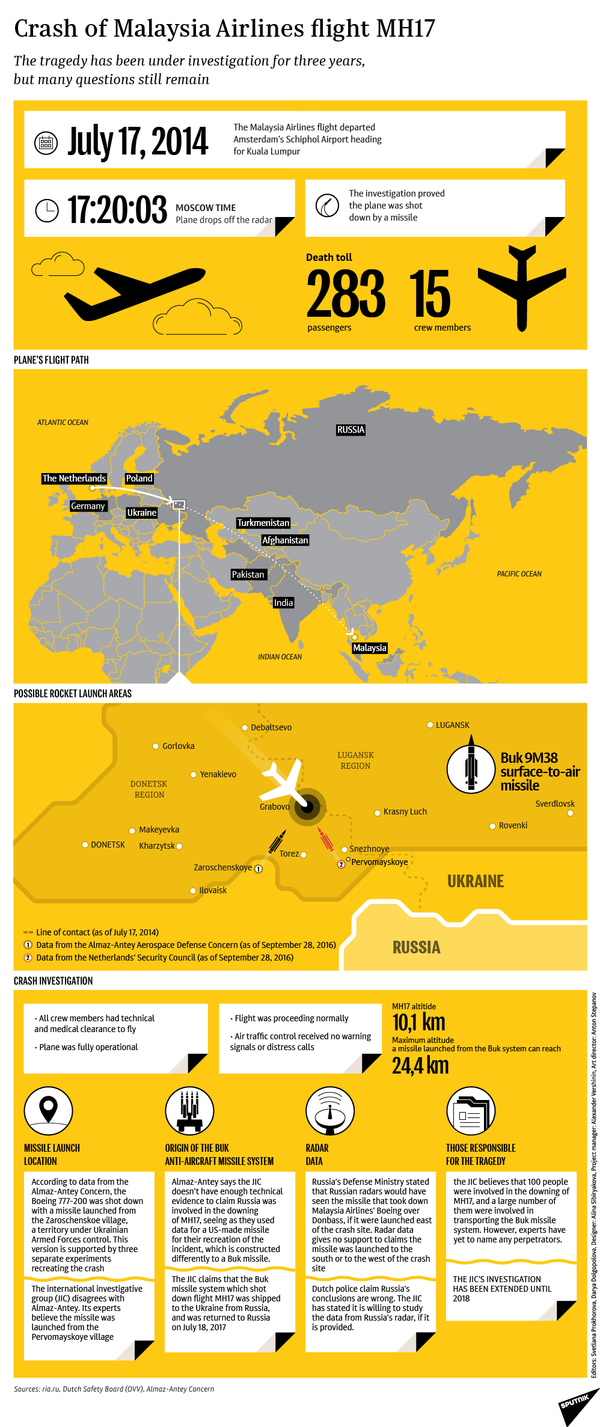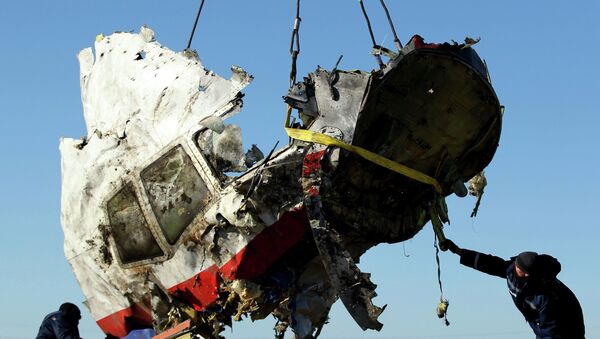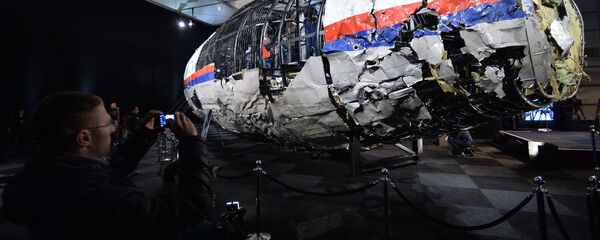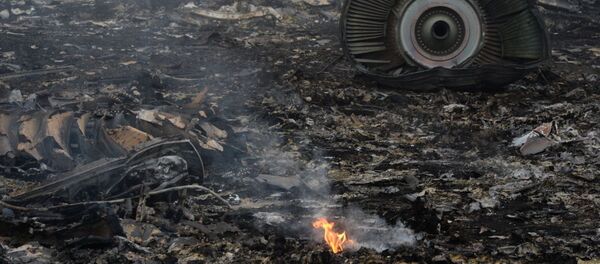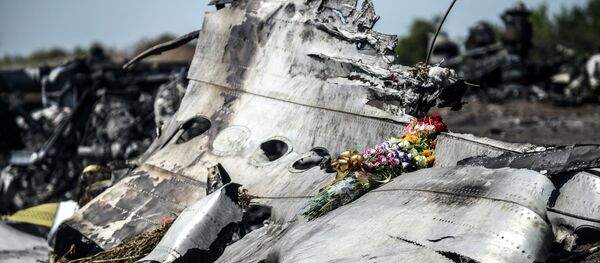Russian authorities have provided new radar data related to the MH17 crash to the Joint Investigation Team that was assembled to determine the cause of this tragedy.
Moscow has already supplied Amsterdam with additional information related to the MH17 crash, but the Dutch investigators claimed they were unable to decode it.
Russian political analyst and journalist Ruslan Ostashko told Sputnik Radio that the West simply won't accept the new evidence supplied by Russia.
"The West would contend with only one kind of statement from Russia: the one that would confirm that we supplied the Buk missile launcher that the militia downed the Boeing with. All other facts, documents and evidence simply won't be accepted. Because objective facts and objective reality are Russian inventions that the West doesn't care about," Ostashko warned.
Furthermore, an experiment conducted by Almaz-Antey confirmed that Donbass militia would've been unable to down the Malaysia Airlines Boeing with Buk missile; and if there actually were any documents that could've implicated Russia, they would've been published by now, Ostashko remarked.
"Russia's desire to prove its case is a good and necessary move, but it would be difficult to get our point across to the West," he surmised.
Malaysia Airlines Flight MH17 from Amsterdam to Kuala Lumpur crashed in the restive Ukrainian region of Donbass on July 17, 2014. All 298 people aboard the Boeing 777 airliner were killed in the crash.
The Russian Foreign Ministry has and continues to argue that this investigation is biased as its findings essentially reflect data supplied by Ukraine. In addition, an experiment conducted by Russian arms manufacturer Almaz-Antey which, among other things, produces Buk air defense systems, confirmed that the Boeing was shot down from territory controlled by Ukrainian forces.
